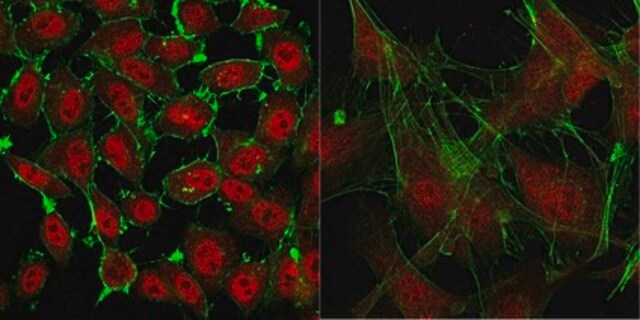SAB5500001
Anti-beta-Actin antibody, Rabbit monoclonal
clone SP124, recombinant, expressed in proprietary host, affinity isolated antibody
About This Item
Prodotti consigliati
Origine biologica
rabbit
Livello qualitativo
Ricombinante
expressed in proprietary host
Coniugato
unconjugated
Forma dell’anticorpo
affinity isolated antibody
Tipo di anticorpo
primary antibodies
Clone
SP124, monoclonal
Reattività contro le specie
human (tested)
Reattività contro le specie (prevista in base all’omologia)
chicken, mouse, rat, bovine, rabbit, pig, dog, hamster, frog
tecniche
flow cytometry: 1:100
immunoblotting: 1:200
immunohistochemistry: 1:200
Isotipo
IgG
N° accesso UniProt
Condizioni di spedizione
wet ice
Temperatura di conservazione
2-8°C
modifica post-traduzionali bersaglio
unmodified
Informazioni sul gene
human ... ACTB(60)
Categorie correlate
Descrizione generale
Immunogeno
Applicazioni
Azioni biochim/fisiol
Caratteristiche e vantaggi
Stato fisico
Esclusione di responsabilità
Not finding the right product?
Try our Motore di ricerca dei prodotti.
Codice della classe di stoccaggio
12 - Non Combustible Liquids
Classe di pericolosità dell'acqua (WGK)
WGK 2
Punto d’infiammabilità (°F)
Not applicable
Punto d’infiammabilità (°C)
Not applicable
Certificati d'analisi (COA)
Cerca il Certificati d'analisi (COA) digitando il numero di lotto/batch corrispondente. I numeri di lotto o di batch sono stampati sull'etichetta dei prodotti dopo la parola ‘Lotto’ o ‘Batch’.
Possiedi già questo prodotto?
I documenti relativi ai prodotti acquistati recentemente sono disponibili nell’Archivio dei documenti.
I clienti hanno visto anche
Il team dei nostri ricercatori vanta grande esperienza in tutte le aree della ricerca quali Life Science, scienza dei materiali, sintesi chimica, cromatografia, discipline analitiche, ecc..
Contatta l'Assistenza Tecnica.












